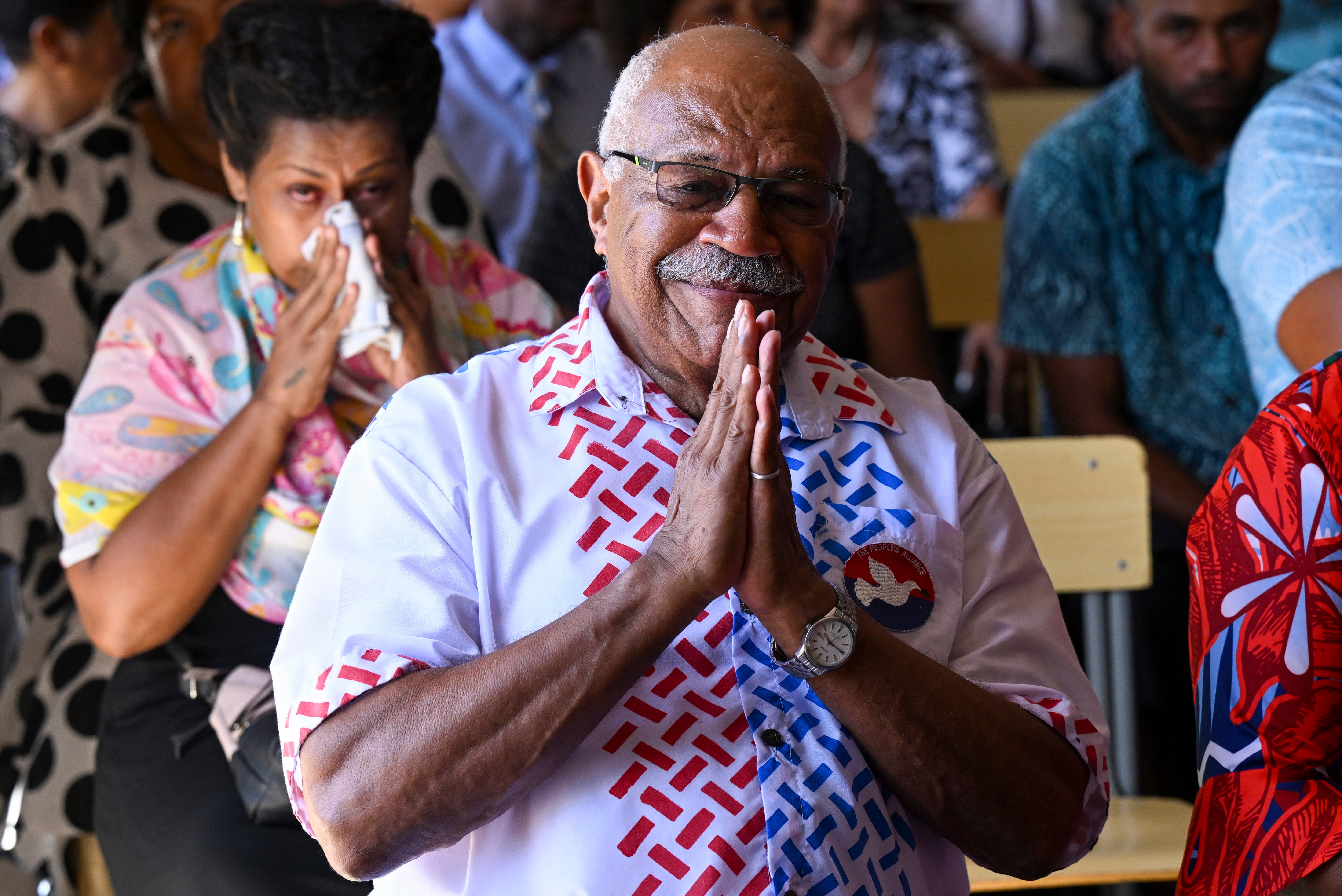Rabuka confirmed as Fiji prime minister after close election
Sitiveni Rabuka has been confirmed as Fiji’s next prime minister more than two decades after the former military commander first held the office in a term lasting nearly seven years

Your support helps us to tell the story
From reproductive rights to climate change to Big Tech, The Independent is on the ground when the story is developing. Whether it's investigating the financials of Elon Musk's pro-Trump PAC or producing our latest documentary, 'The A Word', which shines a light on the American women fighting for reproductive rights, we know how important it is to parse out the facts from the messaging.
At such a critical moment in US history, we need reporters on the ground. Your donation allows us to keep sending journalists to speak to both sides of the story.
The Independent is trusted by Americans across the entire political spectrum. And unlike many other quality news outlets, we choose not to lock Americans out of our reporting and analysis with paywalls. We believe quality journalism should be available to everyone, paid for by those who can afford it.
Your support makes all the difference.Sitiveni Rabuka was confirmed as Fiji’s next prime minister on Saturday more than two decades after the former military commander first held the office in a term lasting nearly seven years.
The 74-year-old won the nomination by one vote over incumbent Frank Bainimarama at a sitting of the Fijian Parliament in Suva.
Rabuka, the head of the People’s Alliance Party, was elevated to the position after forming a majority coalition with two other parties following last week's close and contentious election.
He will be officially sworn in later Saturday at Government House.
The tripartite coalition had announced on Tuesday its intention to form a government with a combined 29 seats compared to the 26 held by Bainimarama’s Fiji First Party.
The People’s Alliance Party and affiliated National Federation Party shared 26 seats but were able to form an alliance with the Social Democrat Liberal Party to break the deadlock.
But Bainimarama, who had served as Fiji’s prime minister for almost 16 years, and Fiji First refused to concede the election results in the days following the polls.
A secret ballot of lawmakers on Saturday chose Rabuka 28-27.
The result indicated that one member of the new ruling coalition was against the change in prime minister.
The same ballot split occurred in voting for the roles of house speaker and deputy speaker earlier during a Christmas Eve parliamentary session lasting three hours.
It has been a tense week in Fiji, a Pacific nation where democracy remains fragile.
On Thursday, army and navy personnel were reportedly called in to protect minority groups over threats against them following the election.
There have been four military coups in Fiji over the past 35 years, and both Rabuka and Bainimarama have held lead roles in previous moves to oust former Fijian leaders.
Rabuka, who was also prime minister between 1992 and 1999, instigated two coups in 1987.
Bainimarama instigated a coup in 2006 that led to the removal of Laisenia Quarase as prime minister, a role he then assumed until the elevation of Rabuka on Saturday.
Earlier in the sitting, Naiqama Lalabalavu was appointed the new speaker of the house after a secret ballot saw him receive one vote more than Fiji First candidate Epeli Nailatikau, who served as president of Fiji from 2009 to 2015.